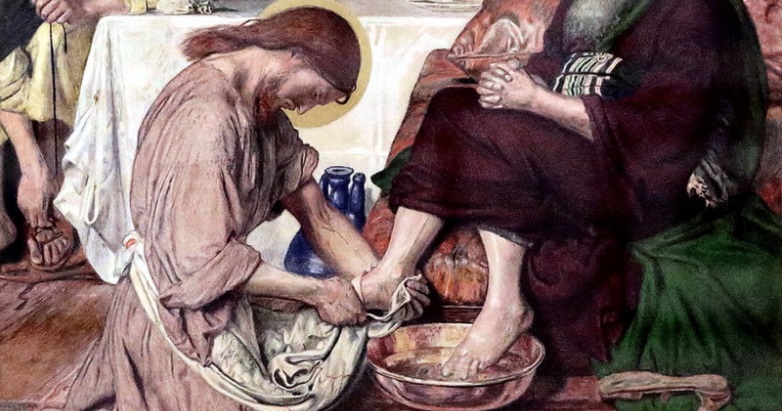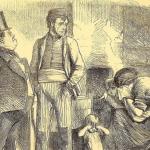What if Church membership were based on loving and trying to act like Jesus, instead of agreeing with a statement of faith? What If the Church Preferred the Path of Jesus to Theology?

Do You Believe in Jesus?
The church has led us to understand that beliefs about Jesus are what faith is all about. When somebody says, “Do you believe in Jesus?” what they’re really asking is something like, “Do you believe in the Trinity? Do you believe that Jesus was born of a virgin? That all the miracles recorded in the Bible are factual? That Jesus died as a propitiation for your sins? That he rose from the dead and now sits at the right hand of the Father? Do you believe that Jesus will return one day? And, if so, what brand of eschatology do you hold to?” Many Christians use creeds or other faith statements as a litmus test to determine who’s in and who’s out of the club. But Jesus never intended it to be that way.
Complicating Trust with Theology
Jesus makes faith very simple, insisting we come to him with the faith of a child. “Believe in me,” he says, intending no doctrinal statements at all, but simply asking his children to trust him. It’s hard for many people to hear that Jesus cares far more about you trusting him than he cares about your theology.
Anybody can learn theology; not everyone can trust. Theology is easy to come by, through seminary or self-study. Trusting God only comes when you’re willing to jump into holy arms like a child surprising a poor parent in a swimming pool. “Catch me, Daddy!” my kid screamed—and it was only then that I turned and saw them already in the air, heading for me. It’s that kind of childlike faith that Jesus wants from believers, knowing without a shred of doubt that the Divine Parent is going to catch them. It’s easy for kids, but difficult for adults. Because we like to complicate our trust with theology.
We complicate our trust with theology when we ask questions like, “What is the distance from the side of the pool to my daddy’s arms? Does he catch me because I jump, or do I jump because he’s there to catch me? If other children jumped, would he catch them, too? If I never jumped, would he come to get me anyway?” All of this is pointless pondering if you never actually jump.
Theology: An Easy Exercise in the Impossible
Theology is so much easier than trust. That’s why the Church has so often preferred doctrine over following the path of Jesus. All you have to do is agree with the right propositional statements, and you’re in! Of course, when it’s all about theology, love can go right out the window. The results have been things like the Inquisition, the Crusades, and the Ku Klux Klan. Theology happens when arrogant people try to figure God out, like fleas trying to understand the dog they’re on. Or, rather, like fleas trying to figure out the cellular makeup of dogs. Theology is an easy exercise in the impossible.
Knowing About God Vs. Knowing God
Am I saying that we shouldn’t engage in theology? No—I am cautioning that we should do so with a lot of humility. And, I’m saying that we shouldn’t let all the things that we know about God overshadow the way we know God. And we shouldn’t use theology as a litmus test to determine who’s in and who’s out of the Church. Jesus never said, “They’ll know you’re my disciples because you’re a premillennialist, because you’re a trinitarian, or because you use the Wesleyan Quadrilateral to understand matters of religion.” No, he said, “By this everyone will know that you are my disciples, if you love one another (John 13:35).”
Washing Feet
On Maundy Thursday, we remember Jesus’ humble act of washing his disciples’ feet. They had been arguing with one another about which one of them was the greatest. They had been debating theology. But Jesus taught them what was more important: humility and love. Taking a towel and wrapping it around himself, he washed their feet. He told them to do the same for one another. He showed them that humility, service, and love are more important than theological wrangling. If only the Church could learn from this example.
What If the Church Preferred the Path of Jesus to Theology?
It’s this love for one another—not the things you say you believe—that will show the world that you’re on the path of Jesus. This love will make you get up and walk out of the sanctuary—not in protest but so you can go out and embrace the world. Giving up on theology allows you to do things you never would have done before. It lets you live like Jesus—loving the unlovable, forgiving the unforgivable, touching the untouchable, and welcoming the unwelcome. It means embodying God’s love and grace to a world that doesn’t know it and doesn’t necessarily deserve it. It means giving up stereotypes, bigotry, and political agendas to embrace the sacred Other Person and see God in them.
What If the Church Preferred the Path of Jesus to Theology? Like Jesus, we’d work alongside all sorts of people who believe differently than we do. Like Jesus, we’d care more about spirituality and sincerity than a litmus test for theology. We’d come to church without arguing with our fellow Christians. We’d simply join in the same mission and share the same love.
For further reading, check out my articles:













